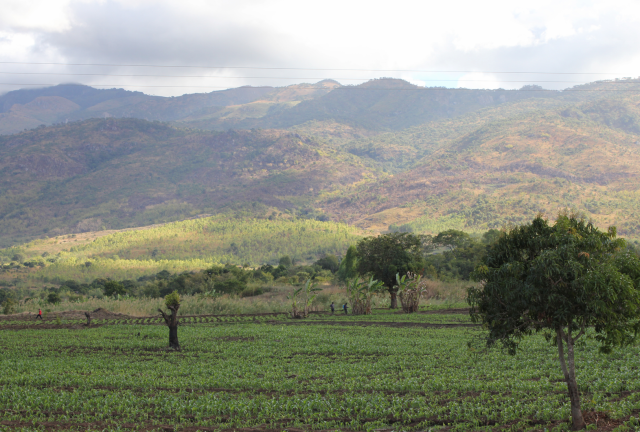
Seeing the Story Behind the Dataset: Perspectives from an Internship
12th May 2025
While studying at King’s College London, having the opportunity to work with EfD has been one of the greatest honors and the most rewarding parts of my experience in the UK. I was initially drawn to EfD’s mission of providing reliable data for policymaking in developing countries. Throughout my academic and professional background, I’ve found that obtaining trustworthy data is often the most challenging yet crucial part of any research. Compared to other international organizations that focus on delivering aid directly, I find EfD’s approach to addressing poverty particularly unique. By starting from the foundation of reliable data and evidence-based research, it may appear modest at first, but it has the potential to create deep and lasting impact. This is what made me especially eager to contribute to such a meaningful mission.
Before beginning any data processing tasks, I was introduced to a set of foundational readings that helped me understand EfD’s research methods. It was my first time learning about the HEA (Household Economy Analysis) and IHM (Individual Household Methodology). These methods are based on fieldwork and interviews with household members to collect real, detailed data on livelihoods. The rigorous design of these interviews ensures that the data are both accurate and reliable. In contrast to the macroeconomic data commonly used in business school research, where countries are often treated as a single unit and internal differences are overlooked, HEA and IHM offer a much more precise picture.
As I processed and uploaded the data, I repeatedly reviewed the details of each household’s livelihood. This allowed me to imagine daily life in rural Malawi. The IHM dataset includes specific information on assets such as land, livestock, and tradable goods, as well as crops, employment, wild food gathering, and transfers from others. These quantitative data points tell compelling stories. It was a fascinating experience, showing how well the data reflect the real lives of the people they represent. I could see how data, when collected with care, can bring us closer to understanding the lived realities of others.
EfD also provided access to livelihood zone profiles based on the HEA methodology. These profiles offered background on local conditions, including climate, agricultural seasons, land ownership, markets, and wealth group structures. I was able to compare four different regions in Malawi. With this context, I could better interpret patterns in the dataset and make sense of certain outliers. For example, I learned that different climate zones support different economic activities and crop types. Variations in land access affect household income and shape differences between wealth groups. These factors all contribute to diverse ways of life across regions. Imagining the local realities behind the numbers made the analysis both meaningful and memorable. It was a kind of connection with the data that I had never experienced before.
I am incredibly grateful to EfD Co-founder Celia Petty and Dr. Deborah Potts for their guidance throughout this placement. They patiently and thoroughly introduced me to the organization’s background and methodology. When I was still unfamiliar with the data, they helped me resolve misunderstandings and provided clear explanations. Their professional advice strengthened my analysis and improved the quality of my work. This placement has expanded my understanding of data collection, research methods, and development studies. I look forward to applying what I’ve learned to my future career. Working with EfD has been an inspiring and meaningful part of my academic journey. I am truly thankful for the opportunity.

Comments
No comments yet.
The comments are closed.